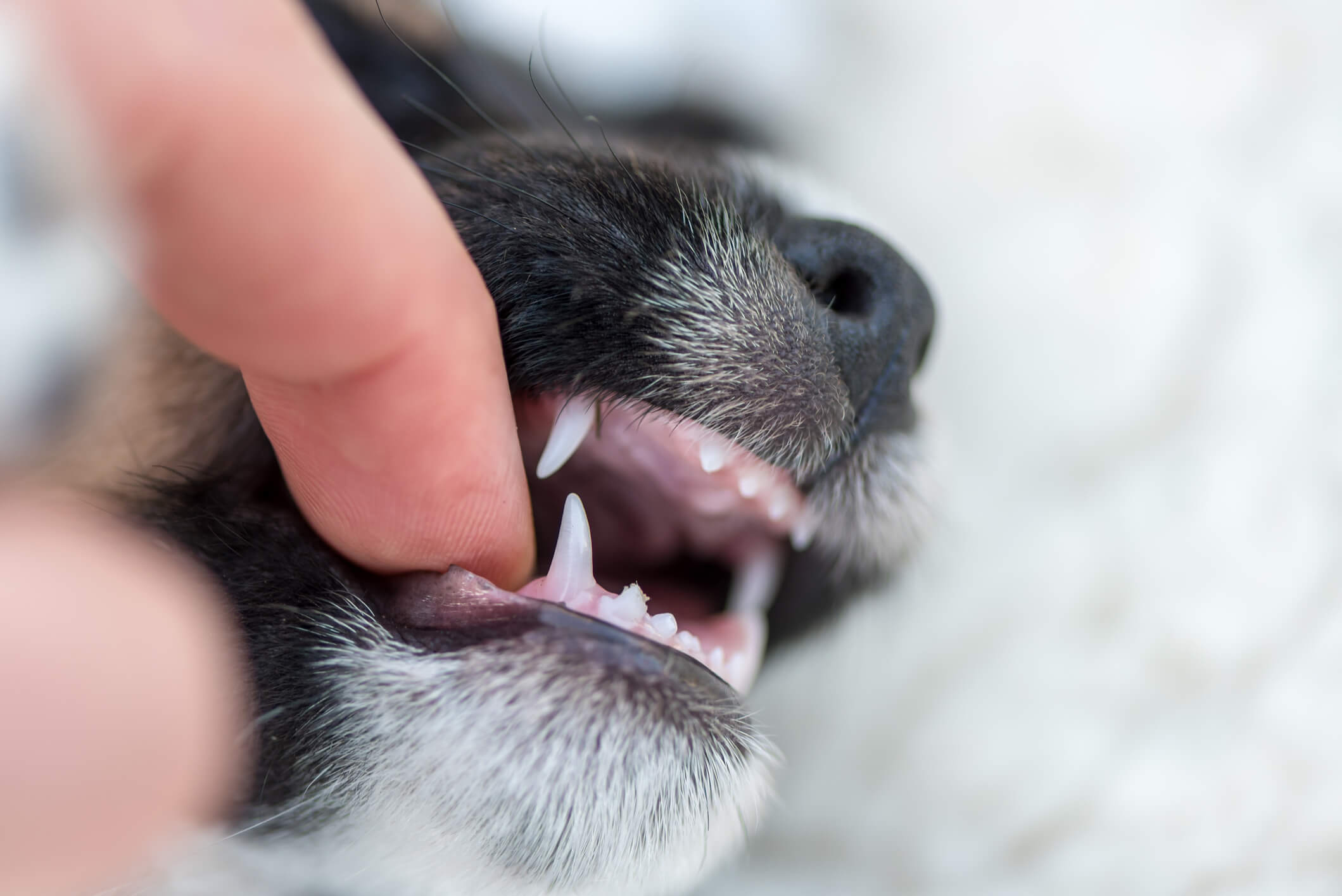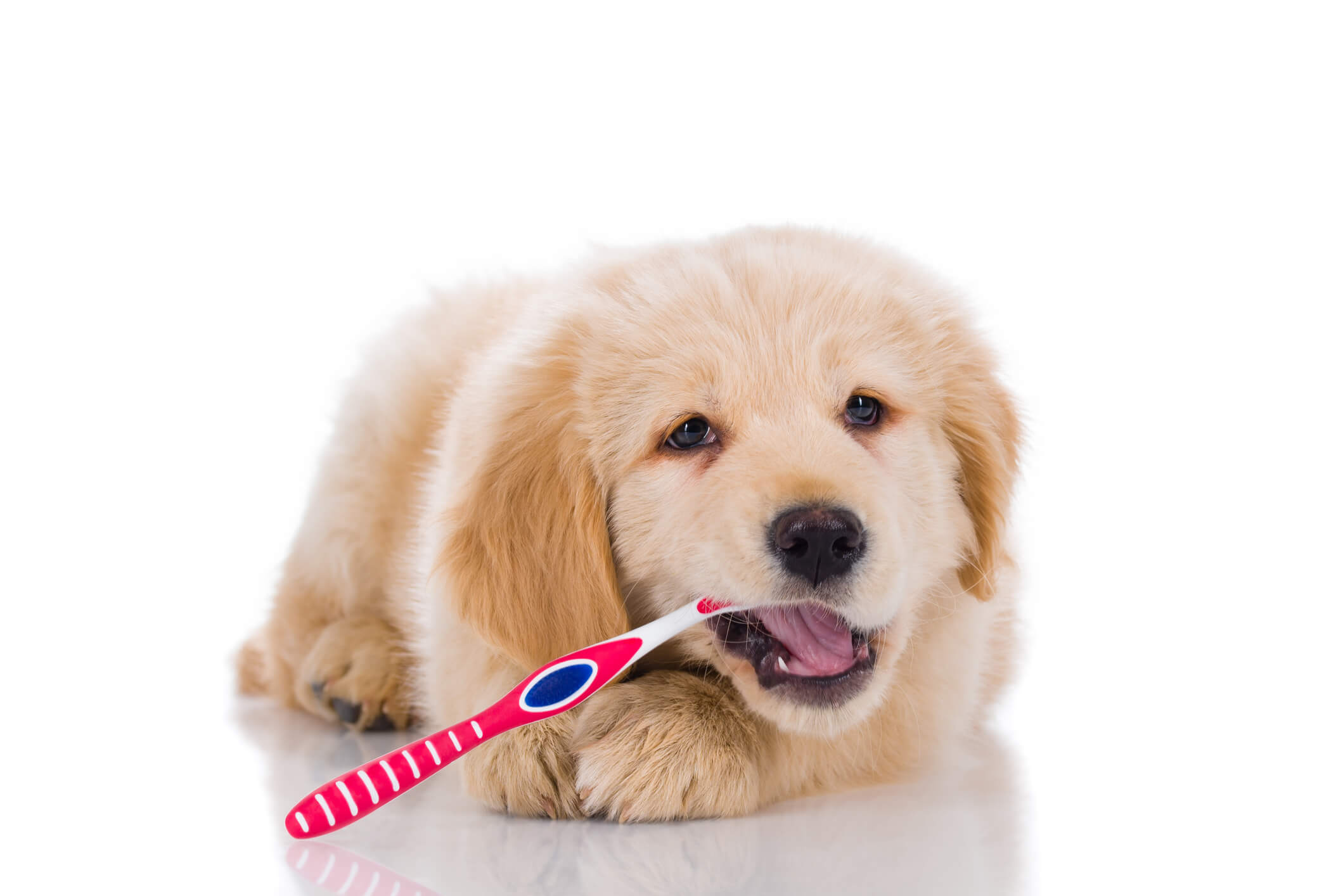
Help Your Teething Puppy Grow Their Adult Teeth
At some point, dog owners may notice that their new pups are acting strange. It seems as if, all of a sudden, they’ve decided to chew up everything in the house! Rest assured, your puppy isn’t simply acting out. Puppies need objects to chew on while they teethe.
Here’s a quick look at how the puppy teething process works and what you can do to ease your pup’s swollen gums.
What to expect from puppy teething
A few weeks after they’re born, puppies grow a set of what’s called “milk teeth.” These are temporary (like a human’s baby teeth) and will eventually fall out. Once puppies get to be about 16 weeks old, they begin the actual teething process. Your pup will gradually lose their milk teeth while adult ones take their place. Puppies usually finish teething by the time they’re eight months old.
Puppies teethe much like human babies do. Your pup’s gums may become red and swollen, and they’ll usually chew on whatever they can get their paws on to help ease the pain—namely, your belongings. One day, you might walk into the living room to find your puppy has sunk their aching teeth into your couch cushions! It’s important to remain patient with your pup and remember they’re in pain, not misbehaving simply for the sake of it.
There’s another reason why puppies chew holes in their owners’ shoes, too. Puppy teething coincides with the stage in their life where they want to explore their surrounding environment. Human babies explore with their hands, but puppies use their mouths. Puppies are curious about everything, so naturally, everything will end up clamped between their jaws!

Teething tips for your pup
Dog owners don’t have to sacrifice their belongings to teething pups, and puppies don’t have to suffer through the pain, either. There are several easy solutions that can save your precious belongings from the clutches of your puppy’s new adult teeth while helping to soothe their aching gums.
Chew Toys
Your first line of defense is providing the pup with chew toys designed to aid in the teething process. Pet stores offer different types of chew toys for all stages of life. When your puppy starts to lose their milk teeth, they’ll probably go for something soft like a pillow. As their adult teeth emerge, your pup will want more durable objects (like a sneaker or TV remote). The second your pup goes after a household object, immediately replace it with the appropriate chew toy.
Consistent positive reinforcement
Be gentle yet firm while correcting these destructive behaviors. Remind yourself that puppies target random objects around the house because they need something to chew on and ease the teething pain. When you trade a couch cushion for a chew toy, your puppy will learn the association between toys and teething, which means they’ll leave your stuff alone in the future. And, don’t forget to praise them for using the chew toys repeatedly!
Puppy proofing
This is also a good time to puppy-proof your home. Even the most well-trained pups can’t resist the temptation of a sock lying right in front of their faces. Owners must remove tempting items from the puppy’s environment in order to avoid unnecessary damage. Keep your living space neat and tidy and make sure everything has a designated spot where your puppy can’t reach it.
The same gadgets designed for human babies can be used to protect your home from a teething pup. Similar to a gate for babies, a doggy gate will stop your pup from entering parts of the house that are either dangerous or off-limits without your supervision.
Ask your vet about oral care
Dogs need proper dental hygiene just as much as their human companions. Oral care will become more of a priority once your puppy starts growing their adult teeth. Schedule checkups with a vet to make sure your puppy has started teething at the age that’s most appropriate for their size and breed. Your vet will also let you know if the puppy is still missing some adult teeth and figure out why those teeth are late in their development.
Once all their adult teeth have grown in, dogs should begin a regular oral care routine. Vets can educate dog owners about how to brush their puppy’s teeth and which dental treats they might enjoy. Your puppy went through lots of pain and hard work to get those pearly whites—now it’s up to you to help take care of them!
No dog owner wants to see their precious pup experience the discomfort that comes with teething. Thankfully, it only lasts a few months before puppies get to enjoy their brand-new set of chompers. Using these teething tips can save your house from destruction and leave you with one happy, healthy pup.



